Vietnam is recognized as one of the world's most biodiverse…
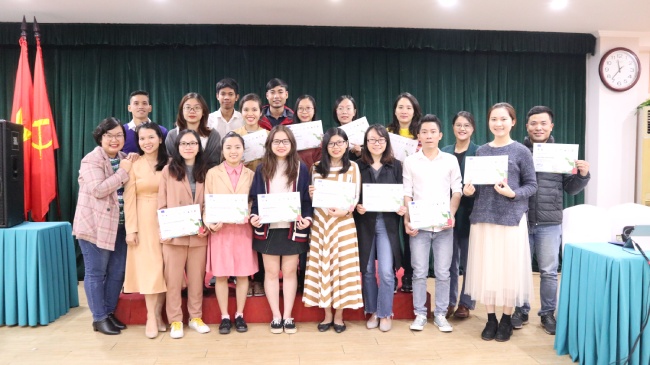
Data and the untold stories
Vien Dang Cong, a technical officer at WWF-Vietnam, had never taken a data-related course before. So, the Data Literacy Training organized by the Open Development Initiative (ODI) in collaboration with the People and Nature Reconciliation (PanNature) was his first exposure to data science. The training was held in two, one-week phases in July and October 2020 in Quang Ninh and Hanoi, Viet Nam.
More than 20 participants from civil society organizations, research institutes, and press agencies participated in Digital Literacy Training. The curriculum was localized based on the World Bank’s Data Literacy Program in order to equip participants with knowledge and skills on data literacy and data-driven storytelling.
Vien was charmed by the numbers that he had formerly considered dry and boring. Before the training, Vien found it challenging to read and understand data. His learning objective for taking the course was focused on connecting with other participants. However, through the course, he learned how to read and use data.
Vien is in charge of collecting and processing data from his fieldwork. The training was an opportunity for him to learn about cutting-edge technology platforms and tools to optimize his work.
“I got to know some useful tools that I have never used before,” said Vien. “I want to apply them to my work in the future.”
After the first week of intensive learning and practice, each participant had to identify their topic for the final project. Vien chose to focus his data project on the environmental impact of hazardous waste, such as batteries, on the forests in central Truong Son.
“Waste, such as batteries, receive more attention in municipalities than in water catchment areas and forests,” said Vien. “This hazardous waste derives from the lack of environmental awareness and bad habits of local people and forest protection officers. They dispose of the batteries indiscriminately when collecting forest products and patrolling, causing negative impacts on the environment. I want to conduct a survey to learn the current state of wasted batteries in the forest and work towards solutions to purify water sources.”
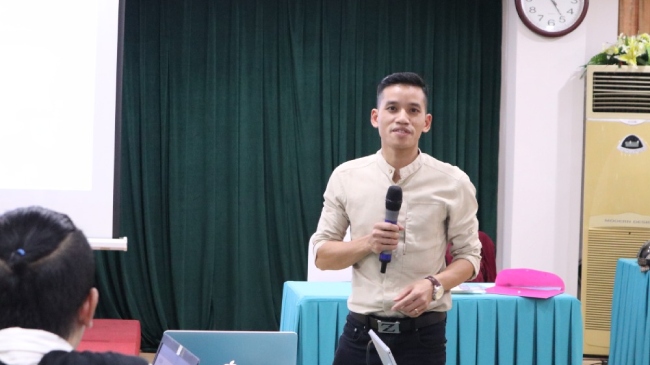
“I proposed my project idea to the director of WWF in Hue and Quang Nam,” said Vien. “I shared information about my plan to provide waste battery bins for local forest protection officers and simultaneously collaborate with local officials to raise awareness among forest protection officers and communities on the need to dispose of waste batteries in the bins. That is a temporary solution that my team can implement.”
Vien transformed his idea into reality by using MAPEO. MAPEO is an easy-to-use offline mapping tool that allows users to create community maps, collect data, and monitor in remote areas. Thanks to the convenient, intuitive, and user-friendly features of MAPEO, he guided people living near the forest to collect information and take photos of points of interest in the forest and the number of batteries. He synchronized the data from people’s personal devices on his computer.
“There are many useful apps that can be used for my work in the future or connect me with people that can support me,” said Vien. “I will share what I learned with my colleagues.”
Like Vien, Ly Nguyen Thao joined this course with curiosity.
She had little previous expertise in data collection, processing, and visualization. Her colleagues at the Center for Sustainable Rural Development (SRD) use traditional methods of collecting and inputting data, which take a lot of time and effort to complete reports.
Ly was motivated to participate in the course to improve her data mining skills to better do her job.
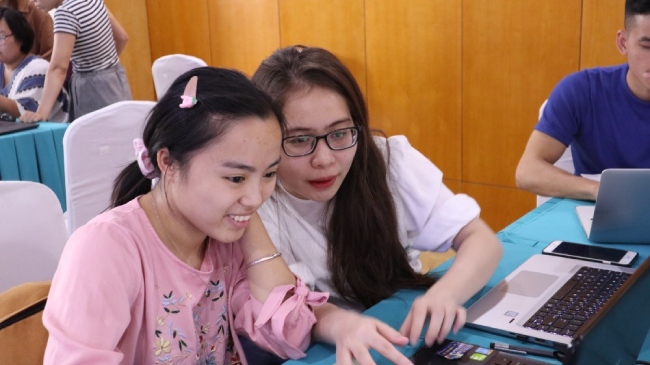
“Before taking the training course, I knew very little about using and processing data or drawing graphs to present information,” said Ly. “I wanted to learn how to effectively process data and develop reports combined with charts to convey my messages to the readers and donors of SRD.”
Because Ly has a special interest in gender equality, she focussed her project on the gender dimension of SRD’s work in supporting the Forest Law Enforcement, Governance and Trade (FLEGT) Voluntary Partnership Agreement (VPA). She wanted to examine the connection between gender issues and micro and small, wood processing enterprises.
“After the training, I now know how to create maps, look up information on credible websites and understand how to apply data visualization tools such as Piktochart or Timeline JS in the forestry sector,” said Ly. “I will make a short report so people can better understand the challenges and opportunities of women in the FLEGT VPA implementation.”
Ly also plans to share the tools she learned from the training with her colleagues.
Like the other trainees, Tuan Nguyen Ngoc Anh, a research officer from the Consultative and Research Centre on Natural Resource Management (CORENARM), attended the training to explore the power of data.
Tuan’s data project examined the impacts of mangrove forests on the livelihoods of residents in Thua Thien Hue Province.
“Since I was a student, I have had a great passion for mangrove forest issues and their implications for people’s livelihoods,” said Tuan. “At that time, my limited knowledge and experience of this topic, coupled with restricted access to essential data, prevented me from fully understanding the nature of the problem. When taking this course, I learned about advanced search engines and data processing tools, which are very useful for me when I develop technical reports.”
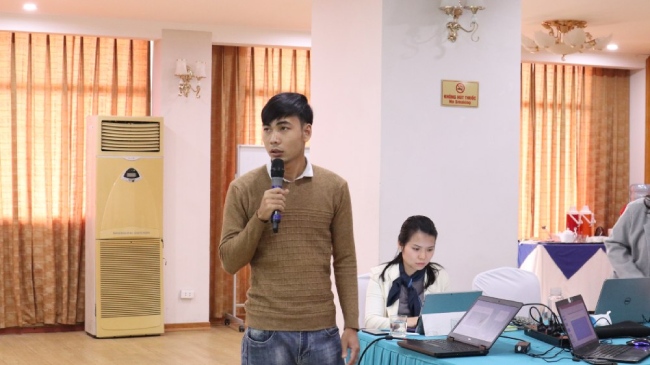
Data processing, analysis, and visualization are no longer obstacles for Tuan in making technical and performance reports.
“Charts help me a lot in my work,” said Tuan. “I now know how to design attractive charts and depict the most appropriate data for each chart type.”
After the training, Tuan said he would share his knowledge of data visualization and digital security with his colleagues.
“All participants have different starting points,” said Nga Nguyen Thu, the ODI trainer for the digital literacy course in Viet Nam. “What they have in common is an eagerness to learn new technologies to better serve their career goals. They are very agile and creative.”
“People often think data literacy is something difficult, but when you explore the tools, you can conquer it,” said Hoang Anh Tran Thi, another ODI trainer for the digital literacy course in Viet Nam. “I am very happy to bring such value to learners. Their active participation in applying data visualization tools in their fields has made a huge impression on me.”
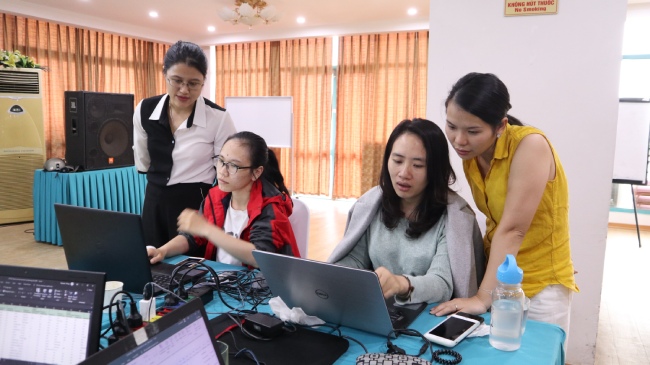
The data literacy training was organized through the EU-funded Voice for Mekong Forests (V4MF) project. The V4MF project works to build the capacities of non-state actors such as civil society to improve forest governance, especially those engaged in the FLEGT VPA and REDD+ processes. RECOFTC leads the project in partnership with WWF-Greater Mekong, the East-West Management Institute-Open Development Initiative (EWMI-ODI), Preferred by Nature, the NGO Forum on Cambodia, the Lao Biodiversity Association, the Myanmar Environment Rehabilitation-conservation Network (MERN), Raks Thai Foundation and People and Nature Reconciliation (PanNature).
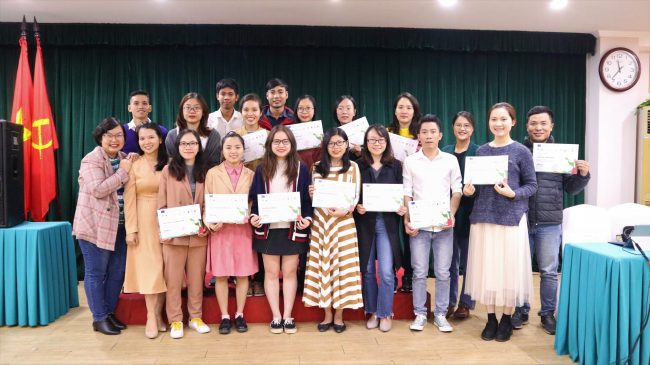
Nguyen Thu Thao, United Nations Development Program (UNDP)
Thuy Truong, CafeBiz.vn
Ngo Toi, HCMC Women Newspaper
Nguyen Thi Ly Ly, Center for Education Promotion and Empowerment of Women (CEPEW) |
*This story is produced with the financial support of the European Union. Its content is the sole responsibility of People and Nature Reconciliation and it does not necessarily reflect the views of the European Union.
Kindly watch the video below for discovering amazing things in Data Literacy Training.
The story was written by Nguyen Ngoc Hien/PanNature and also published on RECOFTC’s website



